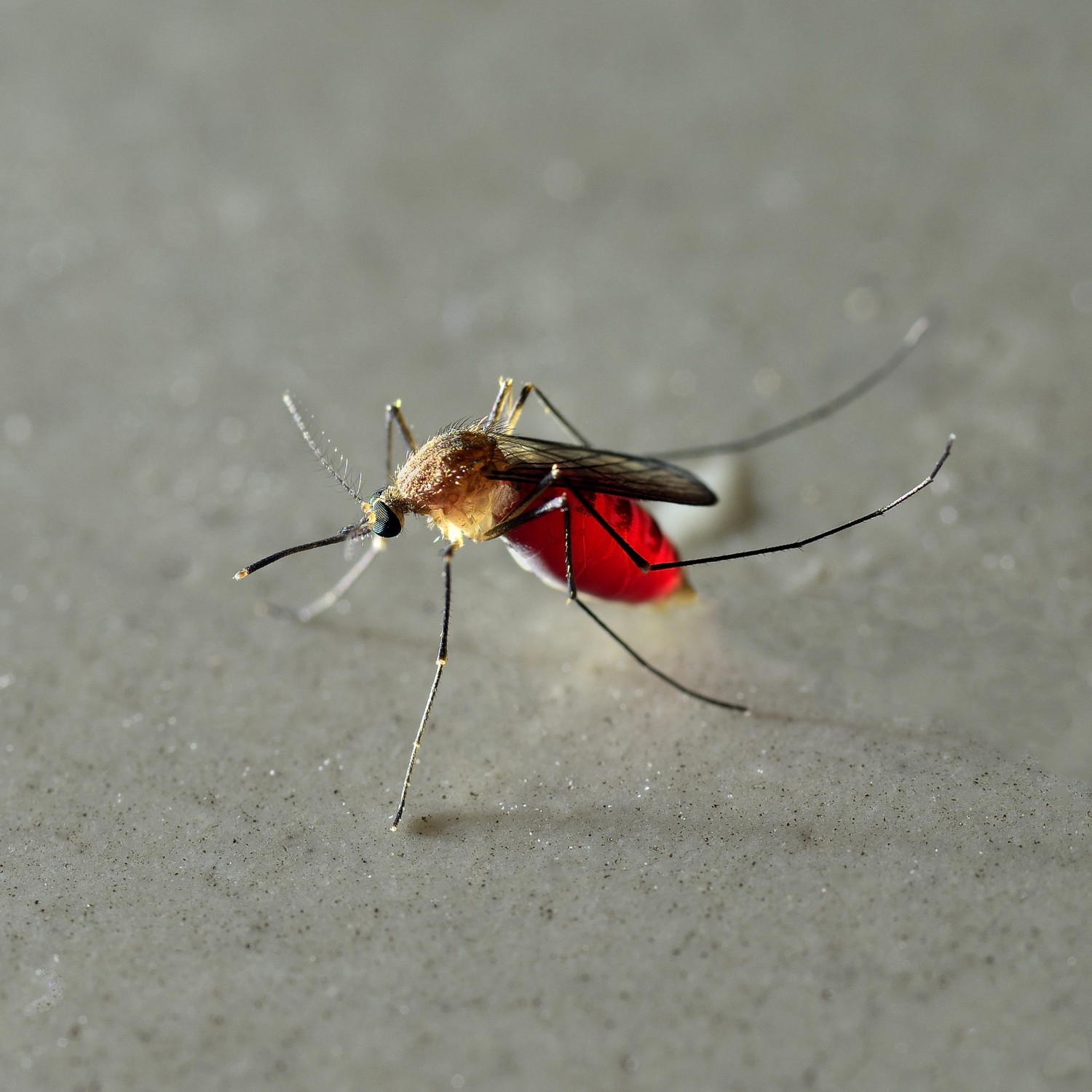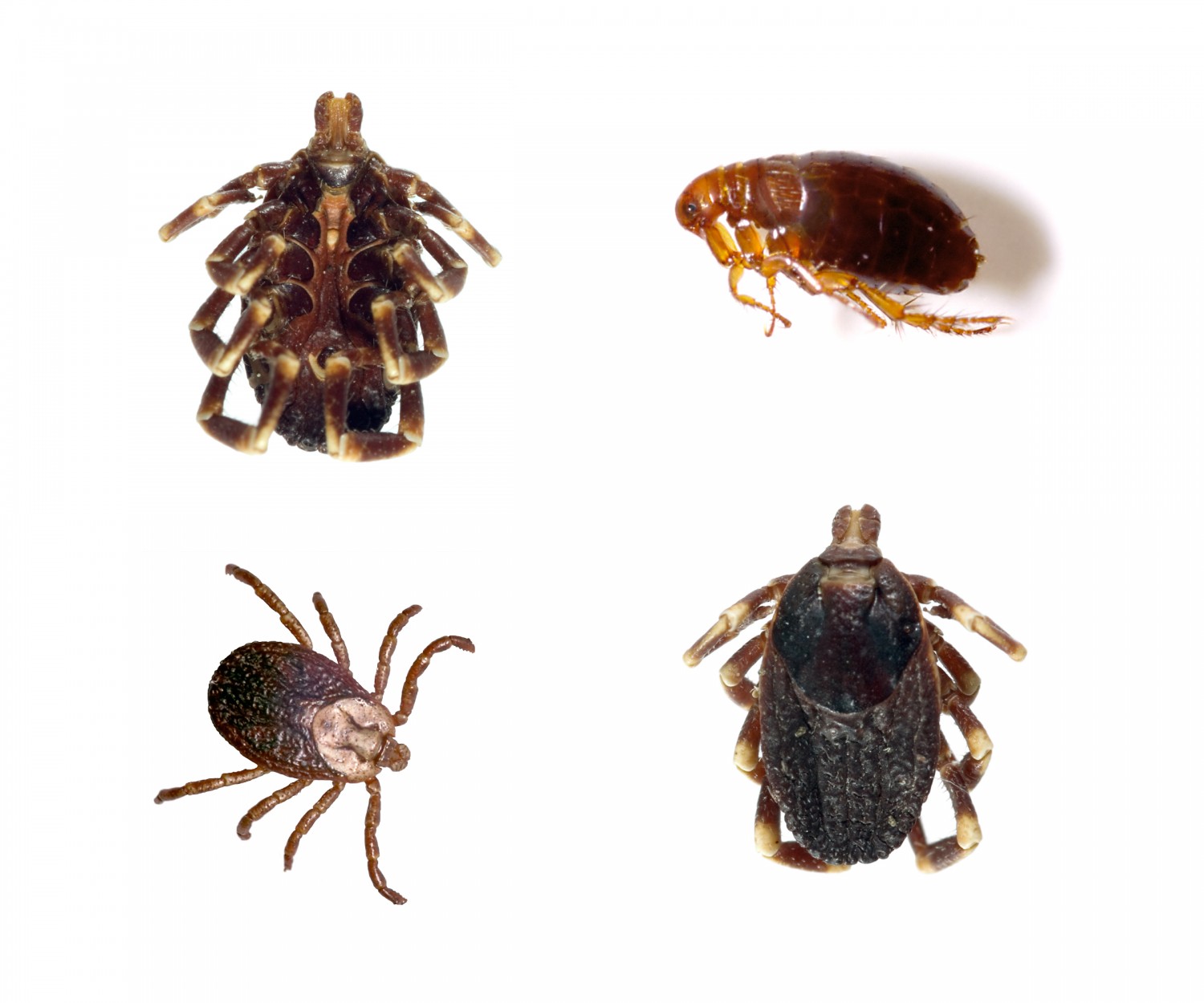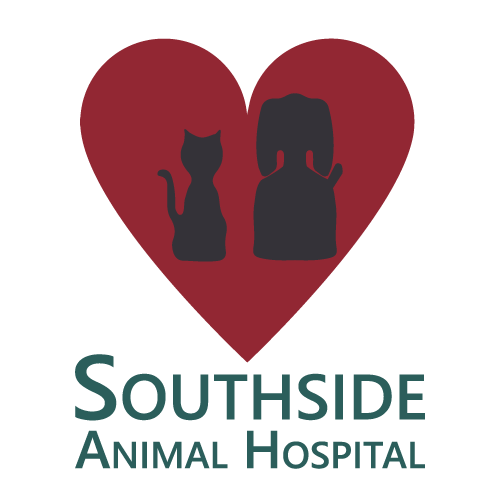|
Our Blogs
|

|
What You Need to Know About Heartworms
Heartworm disease is a serious, potentially fatal condition caused by parasitic worms that are spread through mosquito bites. Once inside the body, these worms live in the heart, lungs, and blood vessels, causing damage over time. Puppies under six months of age typically aren’t tested for heartworms, as it takes several months after infection for the test to detect their presence. That’s why prevention is key—starting a heartworm preventative early is the best way to protect your pet before exposure ever becomes a risk.
Most monthly heartworm preventatives also provide protection against common intestinal parasites such as roundworms and hookworms. This added benefit helps safeguard both your pet’s health and your family’s, as some of these parasites can affect humans too. We recommend year-round prevention to ensure continuous, broad-spectrum protection.
|
|

|
Flea & Tick Prevention in Mid-Michigan
Fleas and ticks aren’t just a nuisance—they can spread serious diseases to both pets and people. In the Mid-Michigan area, ticks can carry Lyme disease, Ehrlichia, and Anaplasma. These illnesses can cause serious long-term health issues if left undetected. That’s why we perform annual testing for these tick-borne diseases as part of your pet’s preventative care.
Fleas can also cause allergic reactions, transmit tapeworms, and quickly infest your home. To help keep your pet and household safe, we recommend year-round flea and tick prevention, even in colder months. Consistent protection reduces the risk of infection, prevents discomfort, and helps maintain your pet’s overall health and wellbeing.
|
Winter Holiday Hazards For Pets
The holidays can be a festive and joyous occasion for many of us. Family gathers together, up go the decorations and out comes the food. In the flurry of activity and hustle and bustle of holidays, it is sometimes difficult to make sure our pets are safe and sound. We have compiled this list of holiday hazards to be aware of and help you avoid costly vet visits!
Limit the stress:
The holidays can be stressful for all of us but, especially for our 4 legged friends. Even just putting up decorations like trees or garland can introduce changes to the house that can be confusing for our pets. Add to that the family and friends that are likely to drop by, and our pets can get very stressed. Try to keep your pets feeding and exercise routine the same during the holidays. If you know your pet suffers from anxiety, consider talking to your vet about anti-anxiety medication. If you are planning a holiday get-together, consider having a friend or relative watch your pet, or make sure they have a room of their own where they can relax. This may be a great time to introduce calming diffusers like DAP or Feliway Optimum.
Seasonal plant and decoration hazards:
- Mistletoe and other common holiday plants, such as Christmas Roses, Poinsettia, Christmas cactus and holly, are toxic to dogs and cats. It’s safest to deck the halls with artificial silk or plastic plants.
- Secure your Christmas tree to keep it from tipping.
- Cover the base of the Christmas tree so pets cannot access the tree water. Tree water may contain toxic fertilizers, and be a breeding ground for dangerous bacteria.
- Just say “no” to tinsel! This sparkly decoration is very attractive to our feline friends and can result in serious and sometimes fatal injury to the digestive tract.
- Keep ribbons and bows out of the reach of pets as it also can cause serious injury if ingested.
- Don’t leave candles unattended! Pets can easily burn themselves and they can be an unnecessary fire hazard. Candles should be in an appropriate candle holder on a flat surface and extinguished when you leave the room.
- Keep wires, wired lights, glass and plastic ornaments out of pet’s reach. Even the low voltage lights can cause a jolt of electricity that can be dangerous and painful if the pet bites through it. Low hanging ornaments look a lot like a cat toy. Glass and even plastic ornaments can cause injury if broken or chewed.
- Be careful with Potpourri and small ornaments on packages. They can have toxic chemicals on them and present a choking hazard.
|
 |
Dangerous foods:
- Avoid a large amount of pumpkin. Small tastes of pumpkin are ok but large quantities can cause stomach cramping and diarrhea.
- Say no to giving leftovers. Most of our Thanksgiving and Holiday foods are high in fats and spices. These can cause anything from simple gastric upset to life threatening pancreatitis.
- Keep the sweets away from your pets. You probably already know that chocolate and the artificial sweetener, Xylitol are toxic to dogs but even other candies can cause a surge in blood sugar and cause digestive upsets.
- No bones, ever! Poultry bones and pork bones splinter easily and cause damage to the intestinal tract. Any bone can bet lodged in the intestinal tract, causing a life threatening obstruction. Bones and even hard toys can crack or splinter teeth.
- Stick to hard, indestructible toys. Rawhides, pig ears, cow hooves can all cause GI problems for our pets. Even soft plush toys can be destroyed, leaving the squeaker as a choking hazard and the fluff as a source for GI blockage.
- Keep raw bread dough away from pets. This can cause severe GI upset and Bloating.
- Keep alcoholic beverages up.
- Macadamia nuts, Nutmeg and ginger can be toxic to our pets.
- Make sure you and your guests have all medication stored in a safe place.
Be Prepared:
Your animal may become poisoned in spite of your best efforts to prevent it. You should keep telephone numbers for your veterinarian, a local emergency veterinary service, and the ASPCA Animal Poison Control Center 1-888-4AN-HELP (1-888-426-4435, for a fee) in a convenient location. If you suspect that your pet has ingested something poisonous, seek medical attention immediately.

Southside Animal Hospital: 517-882-6614
MSU Small Animal Emergency: 517-323-5420
Greater Lansing Veterinary Center: 517-708-2525
Stay Safe and Have a Wonderful Holiday Season!
|










